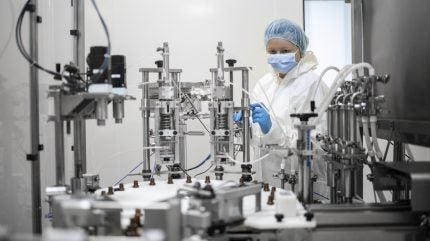
In a bid to boost its presence in the lucrative biosimilar space, Sandoz has signed a non-binding agreement to buy Evotec Biologics’ manufacturing site in Toulouse, France.
By acquiring contract development and manufacturing organisation (CDMO) Just – Evotec’s Biologics’ J.POD facility, Sandoz will take control of the former’s biosimilar development and manufacturing infrastructure, which can produce up to two tonnes of biotherapeutics per year.

Discover B2B Marketing That Performs
Combine business intelligence and editorial excellence to reach engaged professionals across 36 leading media platforms.
Sandoz will use this facility to further bring the development and manufacture of its biosimilar range in-house, helping the company to scale its European operations in a cost-effective manner.
By acquiring J.POD, Sandoz will also gain access to Evotech Biologics’ externally licensed continuous manufacturing technology, which is designed to enhance the site’s operational efficiency.
This agreement is an extension to the pair’s existing collaboration, which saw the Toulouse site’s operations become completely dedicated to the production of Sandoz biosimilars in July 2024.
It also paves the way for Sandoz to potentially acquire 100% of the issued and outstanding equity interests of Just–Evotec Biologics EU SAS, which owns the J.POD biologics development and manufacturing facility in Toulouse, France, for around $300m.

US Tariffs are shifting - will you react or anticipate?
Don’t let policy changes catch you off guard. Stay proactive with real-time data and expert analysis.
By GlobalDataRichard Saynor, CEO of Sandoz, said: “The intended acquisition is fully in line with our strategy to reinforce in-house biosimilar capabilities, while creating additional strategic flexibility.”
Riding the biosimilar wave
Through the acquisition of the J.POD facility, Sandoz hopes to enhance its standing in the biosimilar market, which is currently experiencing a significant uptick in demand.
According to a forecast by GlobalData, the parent company of Pharmaceutical Technology, biosimilars will take 18.3% of the biopharma market share by 2032 — a marked growth from the 5.7% seen in the eight major markets (8MM: the US, Canada, France, Germany, Spain, Italy, the UK and Japan) in 2022.
This trend mirrors the need for cost-effective, accessible therapies amidst branded drug price hikes, which are primarily being driven by Trump’s drug manufacturing reshoring efforts and US import tariffs, according to analysts at GlobalData.
Though the uptake of biosimilars into clinical practice has traditionally been slow, GlobalData notes that their market prevalence will likely continue to increase — driven by changing physician perceptions on their safety, efficacy and cost benefits for patients.
Currently, most biosimilars are produced in India and China, but Trump’s recent tariff announcements mean that drugs from these nations will face 25% and 55% import costs, respectively. This could make way for players in Europe to take a larger slice of the market, as the tariff rate sits at just 15% for countries within the EU.
Navigate the shifting tariff landscape with real-time data and market-leading analysis.
Request a free demo for GlobalData’s Strategic Intelligence here.




